Are you curious about the history of industry and innovation? These are the top industrial heritage museums in Schleswig-Holstein:
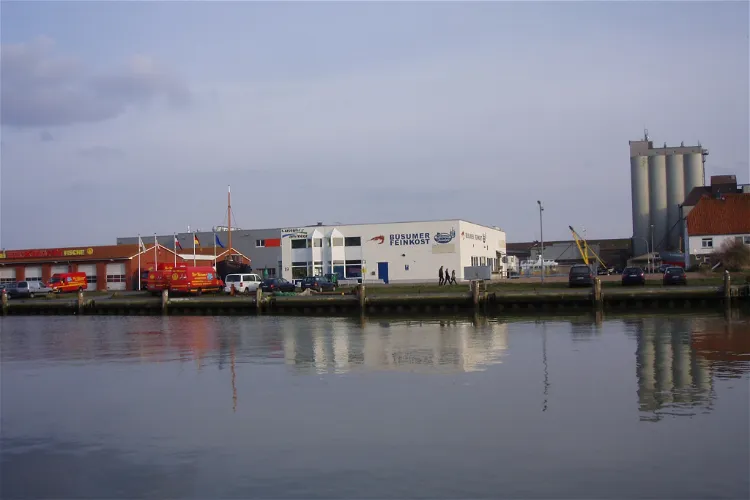
Museum at the sea
BüsumThe Museum am Meer in Büsum is a place where visitors can learn about the history of shrimp fishing and processing in the North Sea, as well as the history of tourism in Büsum. This museum offers a unique insight into the local culture and traditions, making it a worthwhile visit for those interested in learning more about the area's past.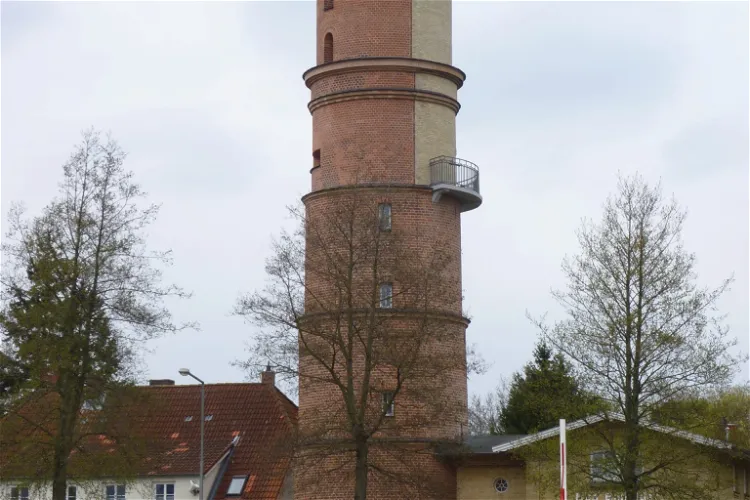
Alter Leuchtturm Travemünde
LübeckThe historic Travemünde Lighthouse, constructed in 1827, is a significant technical and architectural monument. It no longer functions as a sea mark but has been transformed into a museum. The lighthouse, made of red brick and built in a classicist style, stands at a height of 31 meters. It is a symbol of Travemünde, along with the Passat, and is open for visitors to explore.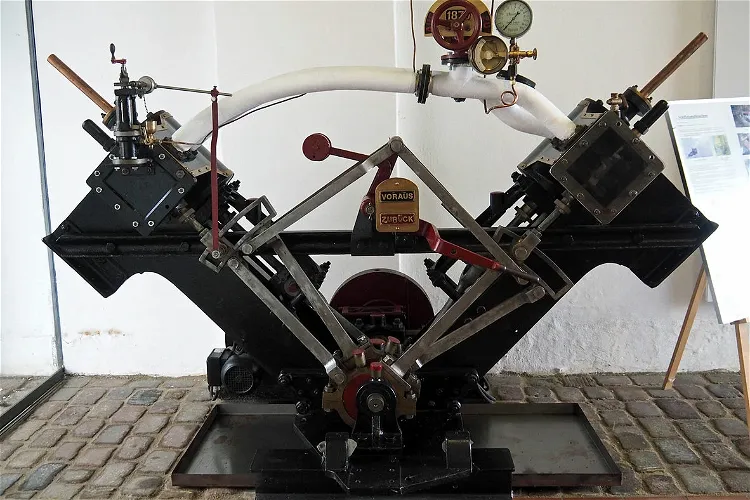
Schifffahrtsmuseum
FlensburgIn 2012, the Flensburg Maritime Museum underwent a complete renovation and re-conception of its exhibition. The exhibition now extends beyond the former customs warehouse to include the customs office courtyard, featuring exhibits on the West Indies voyage, butter trip, and Flensburg shipyard. Additionally, a newly built exhibition building in the courtyard showcases the evolution of technology and everyday life on board over the last 100 years.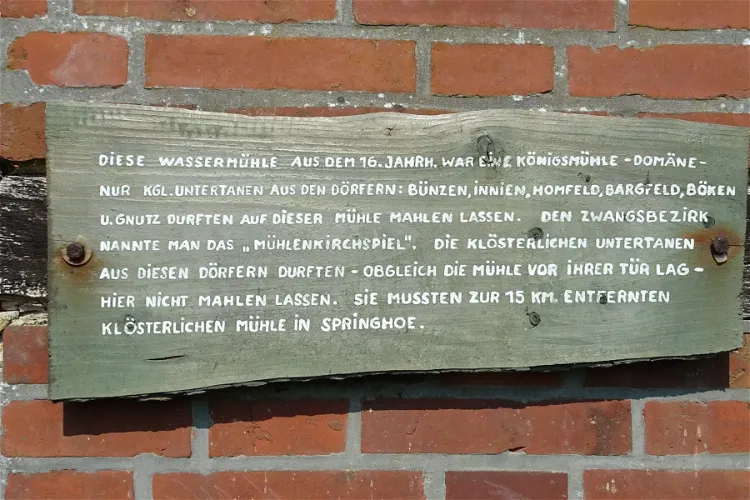
Bünzer Wassermühle
BünzenThe Bünzer Wassermühle is a historical site located in the Bünzen district of the Aukrug municipality. This well-preserved watermill dates back to the 16th century, offering visitors a glimpse into the past. Although the exact year of construction is unknown, there are records of repairs dating back to 1594. Today, the mill is no longer in operation but stands as a testament to the region's rich history.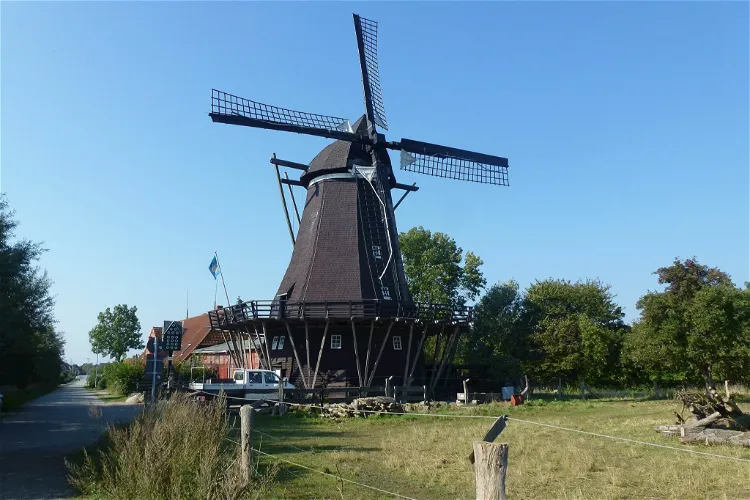
Mühlenmuseum Lemkenhafen
FehmarnThe Mühlenmuseum Lemkenhafen is situated in the historic sail windmill, 'Jachen Flünk', in Lemkenhafen on the island of Fehmarn, in the district of Ostholstein, Schleswig-Holstein. This location offers a unique opportunity to explore a piece of history in a picturesque setting.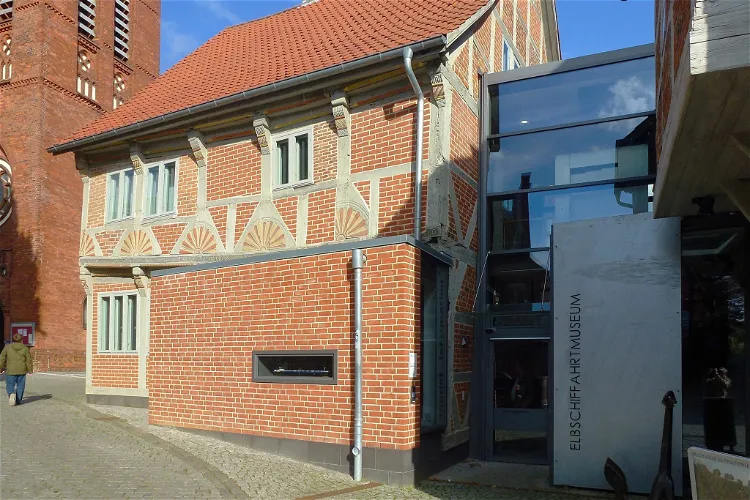
Elbschiffahrtsmuseum
Lauenburg/ElbeThe Elbschifffahrtsmuseum, located at Elbstraße 59 in Lauenburg/Elbe, Schleswig-Holstein, is a museum dedicated to the history of shipping on the Elbe from Bohemia to Hamburg. It provides a comprehensive overview of the historical development of Elbe shipping, with models, display cases, and original exhibits.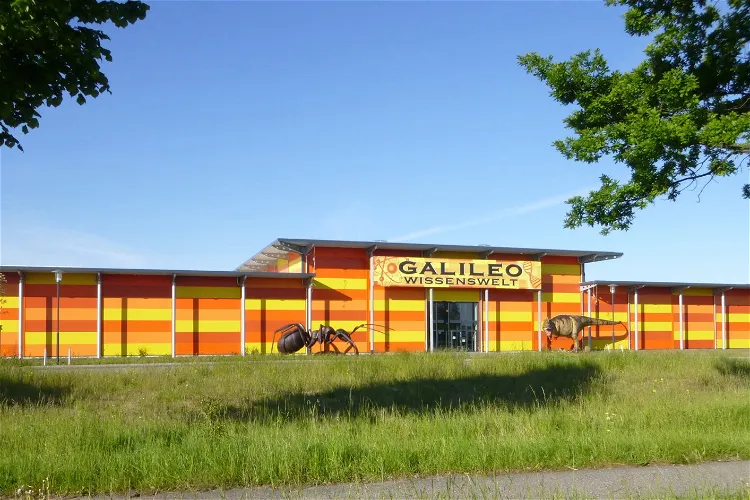
Galileo Wissenswelt
FehmarnThe Galileo Wissenswelt is a museum situated on the Baltic Sea island of Fehmarn in Ostholstein. This museum is a unique blend of a traditional collection museum and a children's and youth museum, emphasizing the concept of 'understanding through grasping'. It offers a comprehensive exploration of natural history and technology across its 3,200 square meters of space in the main building in Burg on Fehmarn.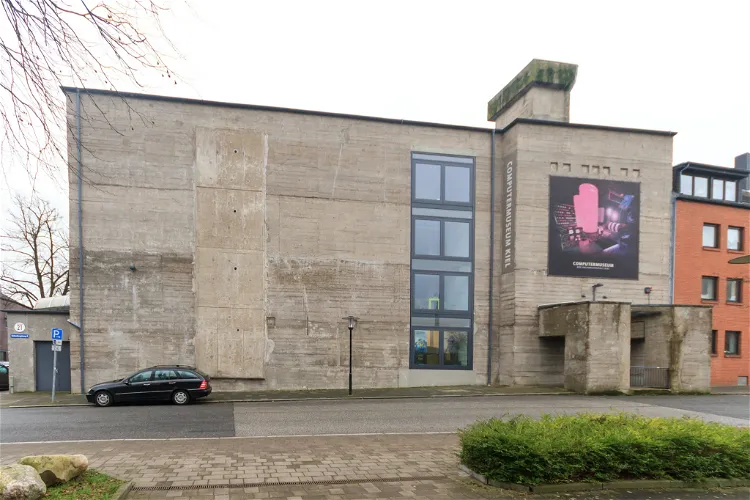
Computermuseum
KielThe Computermuseum of the University of Applied Sciences Kiel, located in the Neumühlen-Dietrichsdorf district of Kiel, was inaugurated on June 14, 2011. This museum is a unique destination for those interested in the history of computing and technology.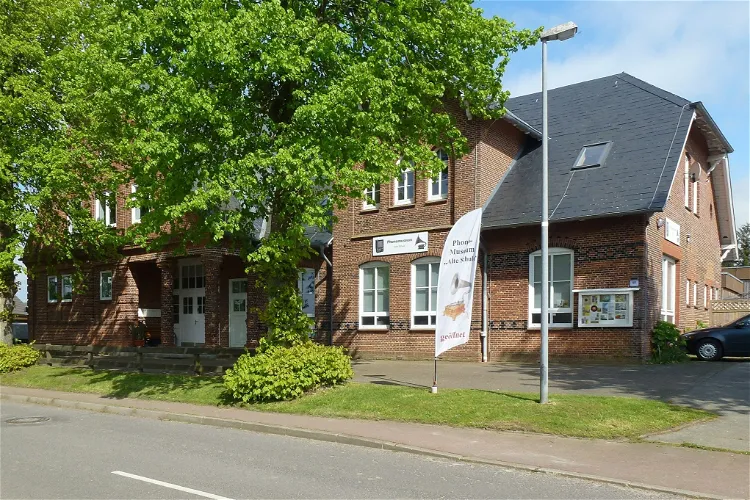
Phonomuseum Alte Schule
SeeholzThe Phonomuseum "Alte Schule" is a private institution dedicated to the history and technology of the radio and gramophone industry. It is located in Holzdorf, Schleswig-Holstein, providing a unique insight into the evolution of sound recording and playback devices from 1880 to around 1965.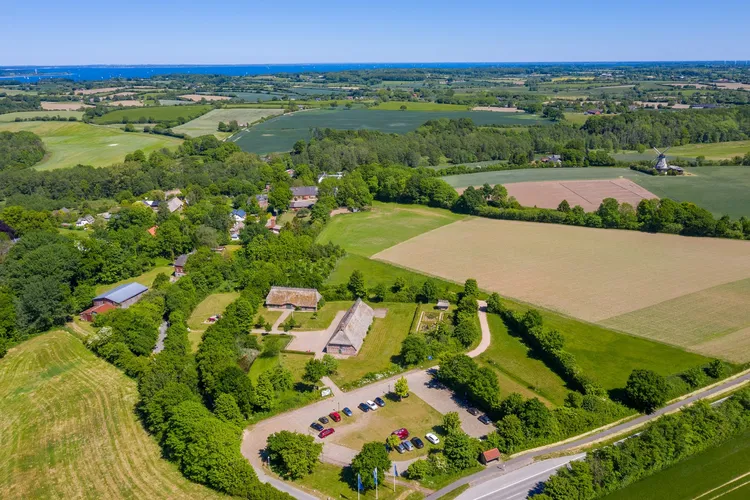
Landschaftsmuseum Angeln Unewatt
UnewattThe museum consists of five "museum islands" or stations that can be visited on a circular route through Unewatt. This unique setup allows visitors to explore different aspects of the region's history and culture at each station.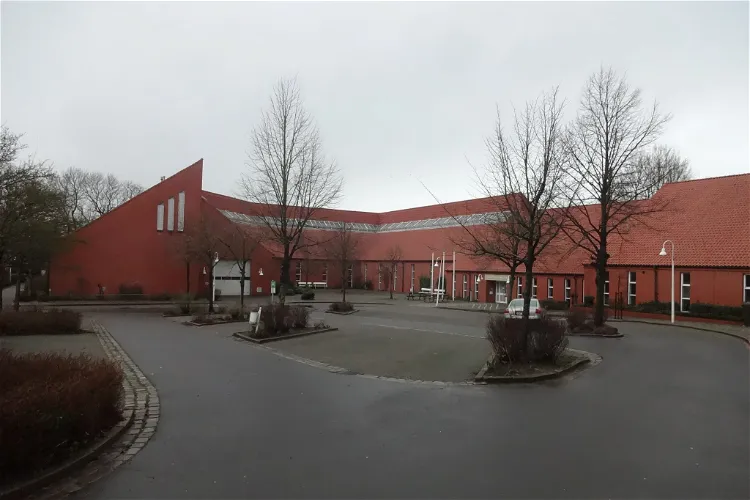
Schleswig-Holsteinisches Landwirtschaftsmuseum
MeldorfThe Schleswig-Holstein Agricultural Museum provides a comprehensive view of the agricultural structural changes that took place from the late 19th century to the mechanization of agriculture. Visitors can gain a deep understanding of the evolution of farming practices and technologies over time. The museum's exhibits include tractors, engines, and historical agricultural machinery, which vividly illustrate the transformation of rural working life from soil cultivation and sowing to harvesting.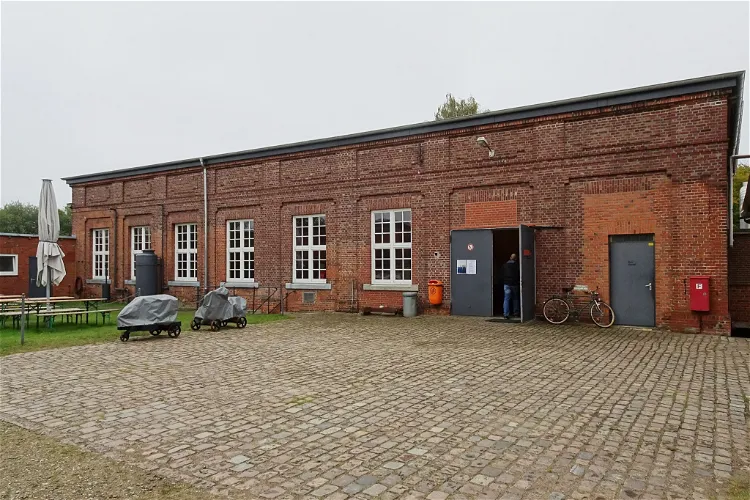
Machinery Museum Kiel Wik
KielThe Machinery Museum Kiel-Wik, also known as Mmkw, is situated at Kiel Canal 44, in close proximity to the North-East Sea Canal in the Wik district. This industrial museum, which was inaugurated in 1985, is managed by the Machinery Museum Kiel-Wik Foundation.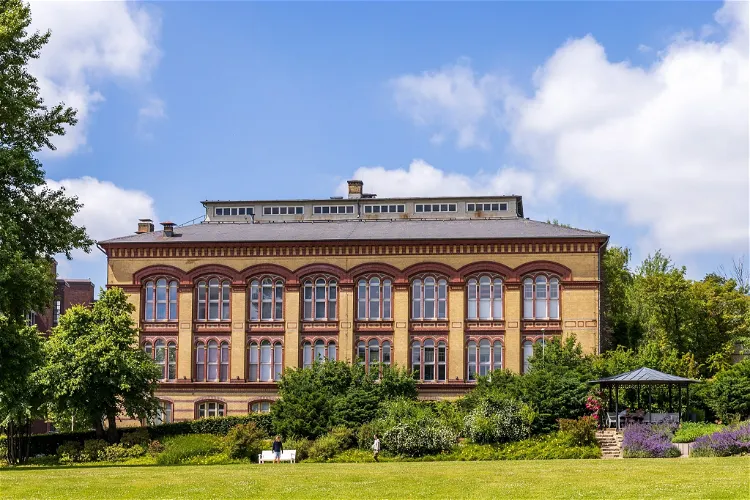
Medical and Pharmaceutical Historical Collection;
KielThe Medical and Pharmaceutical Historical Collection is a part of the Medical Faculty at the Christian-Albrechts-University in Kiel. This collection is a significant part of the university's commitment to preserving and showcasing the history of medicine and pharmacy. It provides a unique opportunity for visitors to explore the evolution of these fields over time.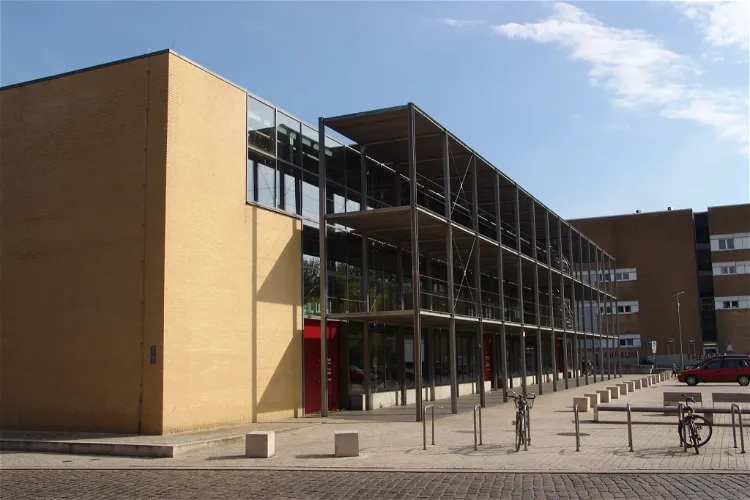
Museum Tuch + Technik - Textilmuseum
NeumünsterThe Museum Tuch + Technik in Neumünster, Schleswig-Holstein, provides a comprehensive overview of the history of cloth making, spanning from the Iron Age to the present day. It also offers insights into the history of the city of Neumünster. The museum's exhibits include more than 400 items that illustrate the basic principles of cloth production throughout the ages and the close connection between the city's history and this craft.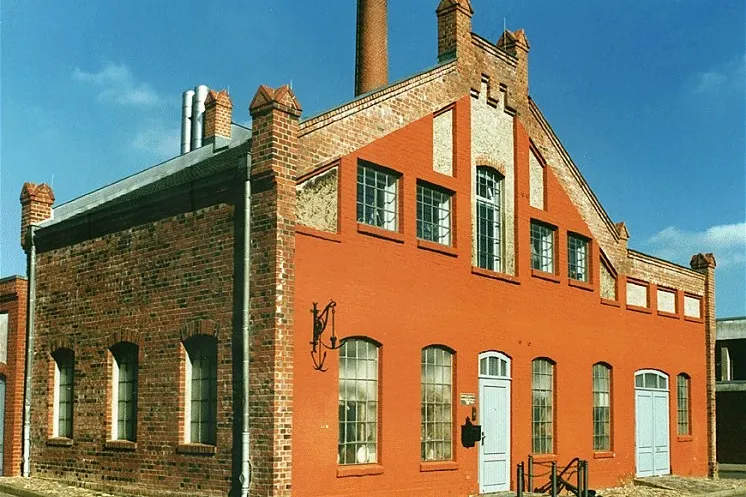
Historisches Uetersen e.V.
UetersenThe Stadt- und Heimatgeschichtliche Museum in Uetersen is situated in the old town, close to the monastery. It is housed in a former gas plant from 1855, which is now a protected monument. This location adds a unique historical charm to the museum, making it an interesting place to visit for those interested in architecture and history.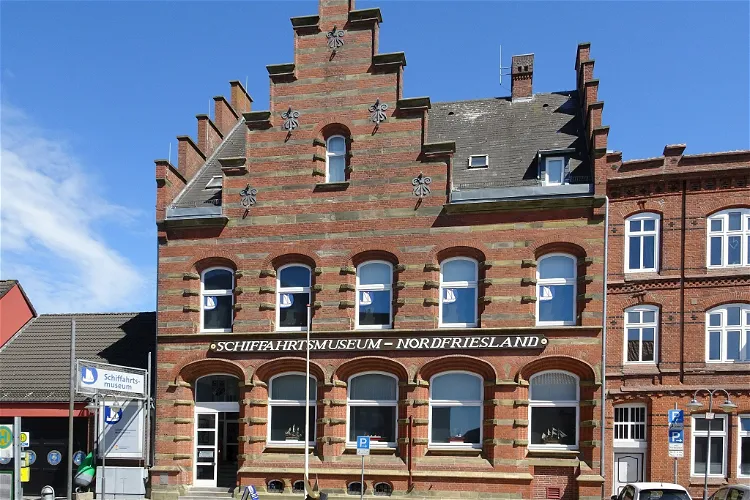
Schifffahrtsmuseum Nordfriesland
HusumThe Schifffahrtsmuseum Nordfriesland is situated at Zingel 15 in Husum, Schleswig-Holstein. This location is easily accessible and provides a convenient starting point for exploring the rich maritime history of the region.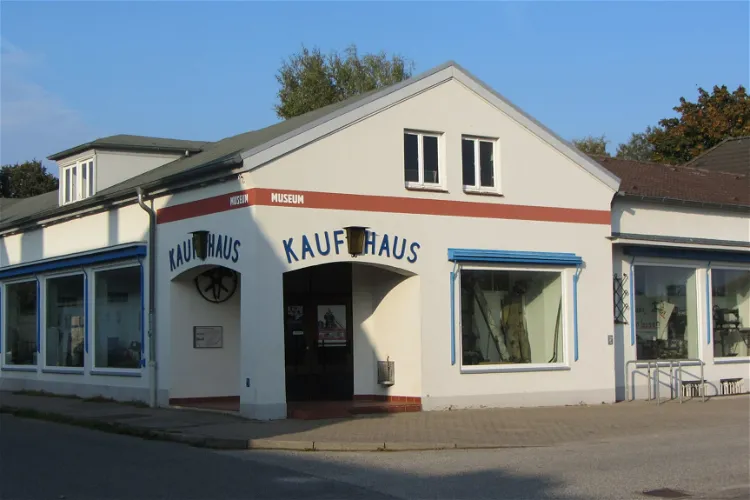
Industriemuseum Geschichtswerkstatt Herrenwyk
LübeckThe Industriemuseum Geschichtswerkstatt Herrenwyk is situated in the former department store of the Hochofenwerk Lübeck AG in Lübeck- Herrenwyk. This location adds a unique historical context to the museum, as it was once a bustling hub of industrial activity. Visitors can appreciate the museum's setting and its connection to the city's industrial past.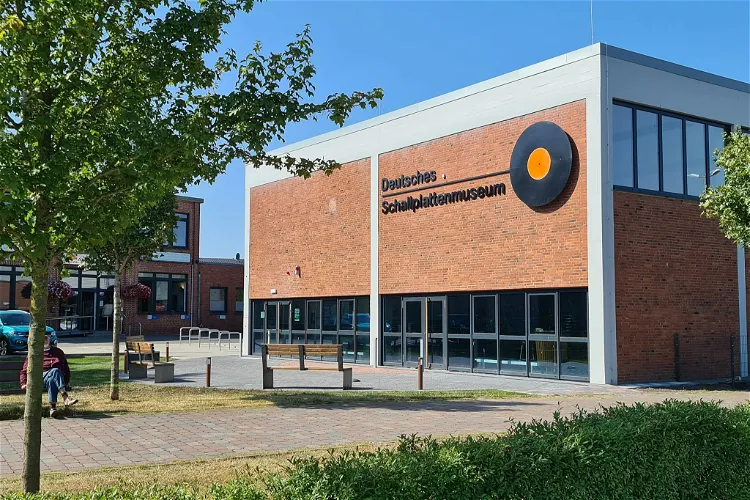
Deutsches Schallplattenmuseum
NortorfThe Deutsches Schallplattenmuseum, or German Record Museum, is situated in Nortorf, housed in the boiler house of the former Teldec record factory. This location is steeped in history, as Nortorf was a long-standing production site for the Teldec label and is still known beyond Schleswig-Holstein as the 'City of Records'.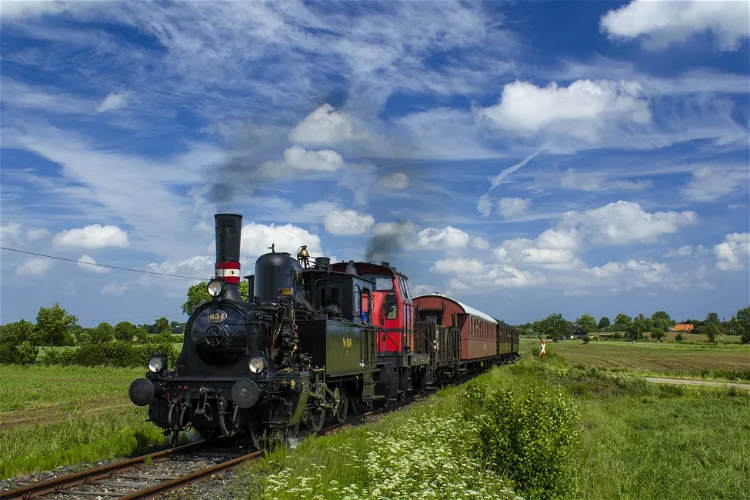
Angelner Dampfeisenbahn
KappelnThe Angelner Dampfeisenbahn, also referred to as the Angelner Eisenbahn or Angeln-Bahn, is a museum railway that provides rides on the Süderbrarup–Kappeln route through Angeln. This railway offers a unique opportunity to experience the scenic beauty of the region while enjoying a ride on a historic train. The museum railway operation was started in 1979 by the Friends of Rail Transport Flensburg, founded in 1973.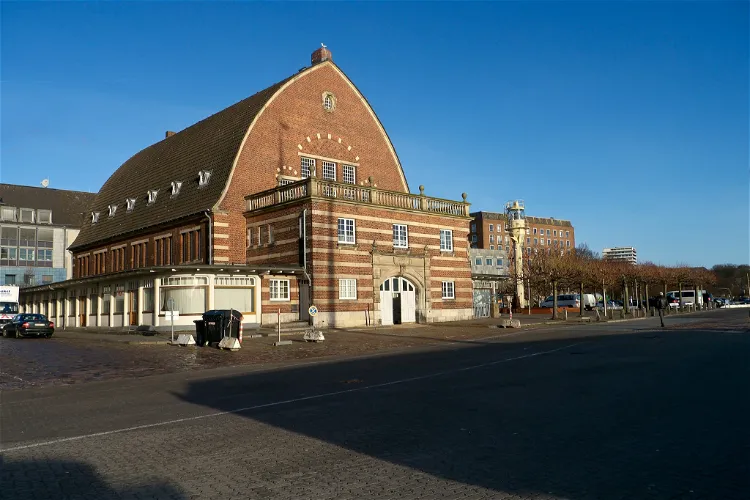
Kiel Maritime Museum
KielThe Kiel Maritime Museum, located in the former fish auction hall at Sartorikai, was established in 1978. This historic building, which once served as a bustling hub for the local fish trade, now houses a comprehensive collection of maritime artifacts and exhibits. The museum's location adds a unique charm and historical context to the visitor's experience.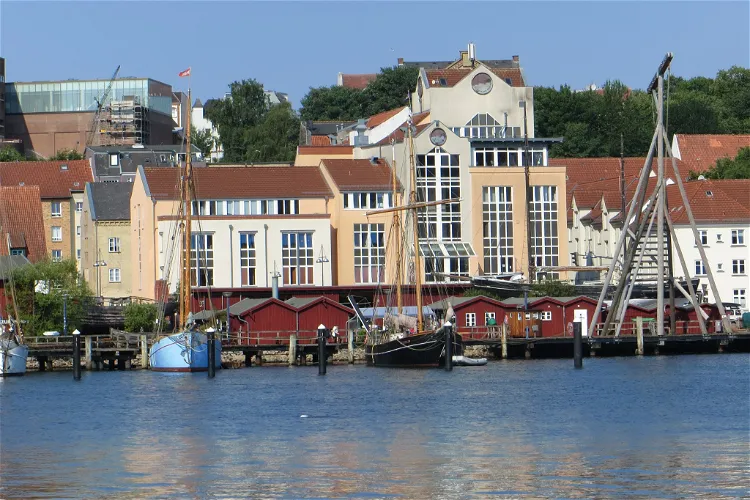
Museumswerft Flensburg
FlensburgThe Museumswerft Flensburg, founded in 1996, is situated at the Flensburg harbor. After several relocations between 1996 and 2001, the museum has been firmly established at its original location, Schiffbrücke 43, since 2001. This location is steeped in history and provides a unique setting for the museum.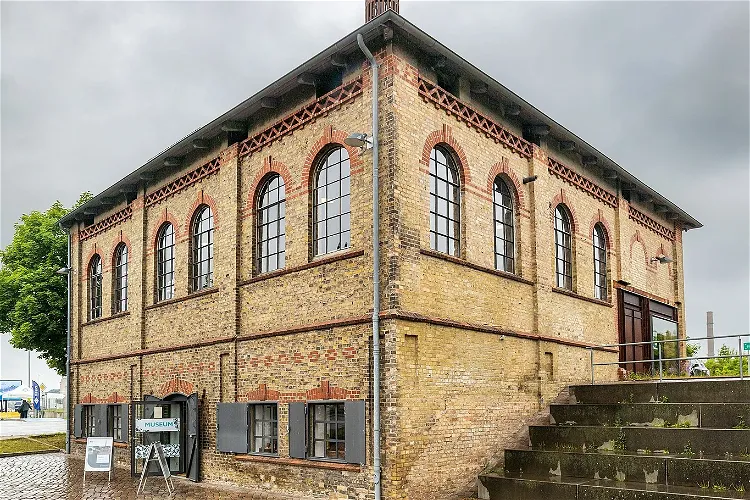
Industriemuseum Howaldtsche Metallgießerei
KielThe Industriemuseum Howaldtsche Metallgießerei is situated at Grenzstraße 1, on the northern bank of the Schwentine in Kiel. This location is easily accessible and offers a unique opportunity to explore the rich industrial history of the city.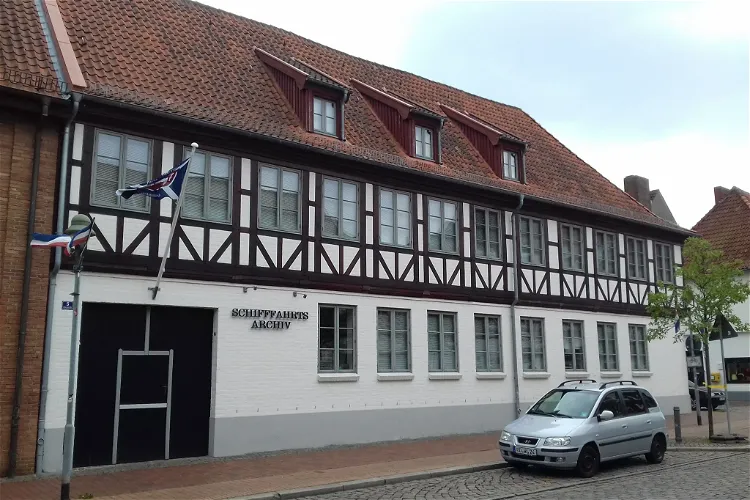
Rendsburger Schifffahrtsarchiv
RendsburgThe Rendsburger Schifffahrtsarchiv museum is a unique place where visitors can explore the history of shipping, with a particular focus on shipyards and shipowners from Schleswig-Holstein. The museum, which spans 550 square meters, has been showcasing this history since the 1940s. It provides a comprehensive overview of the maritime industry in the region, making it a fascinating destination for those interested in maritime history.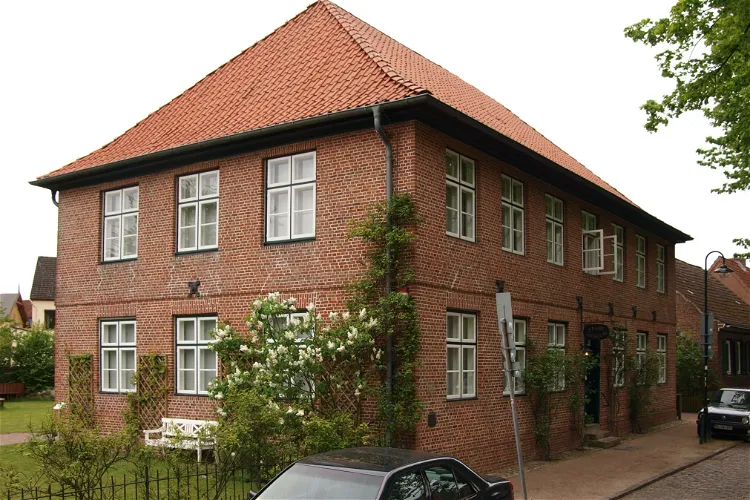
Stadtmuseum Wedel
WedelThe Stadtmuseum Wedel, situated in the Schleswig-Holstein district of Pinneberg, is a city museum that offers a comprehensive collection of city history. The exhibits span from the time of the first documented mention of Wedel to the present day, providing visitors with a rich understanding of the city's evolution over time.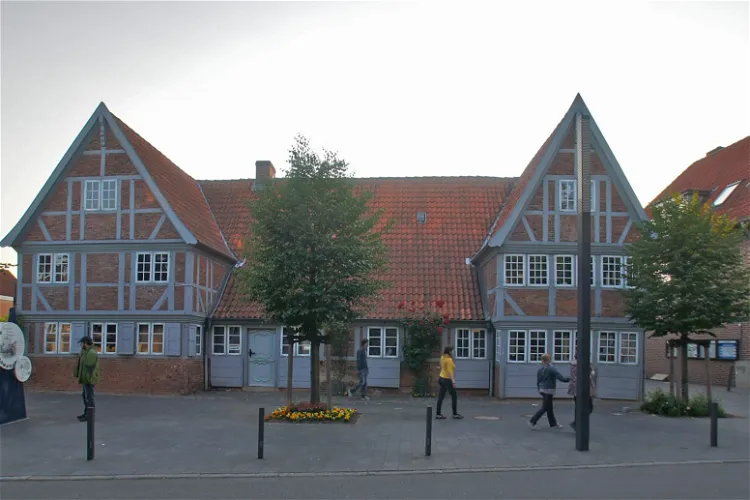
Geesthacht Museum
GeesthachtThe Geesthacht Museum, housed in the Krügersche Haus in Geesthacht, Kreis Herzogtum Lauenburg, is a local history museum. It offers a unique opportunity to delve into the settlement and economic history of the city. The museum is located in one of the oldest surviving half-timbered houses in Geesthacht, adding to its historical charm.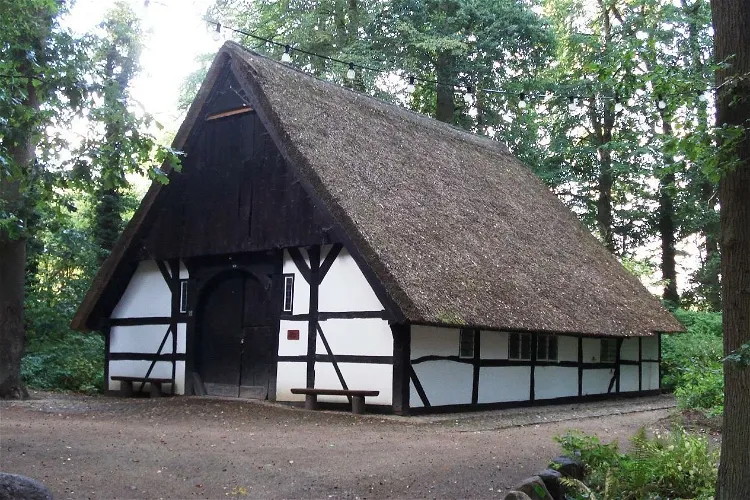
Tews-Kate
MalenteThe Tews-Kate in Malente, located in the region of Schleswig-Holstein, holds the distinction of being the oldest smokehouse in Ostholstein. It is nestled within a forest in the northwest part of Malente, offering a unique blend of history and natural beauty.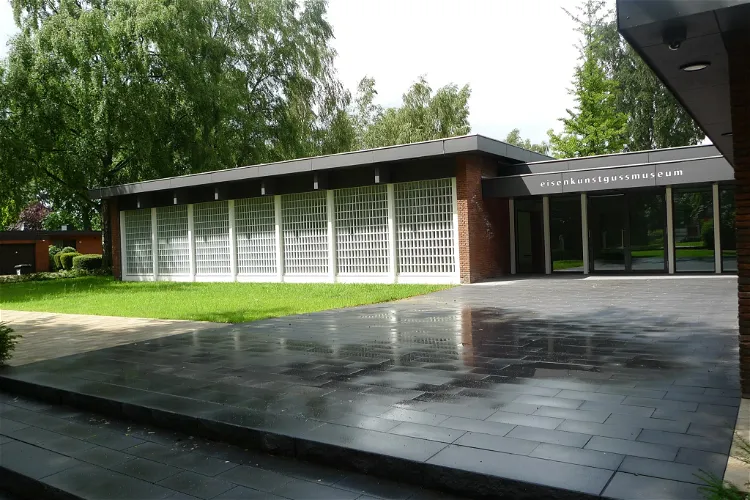
Eisenkunstguss Museum
BüdelsdorfThe Eisenkunstguss Museum Büdelsdorf is a unique trade museum located in Büdelsdorf. It is dedicated to the exploration and preservation of cast iron, the art casting of the 19th century, and the associated history and cultural history. This museum provides a deep dive into the world of iron casting, offering a unique perspective on this important aspect of industrial history.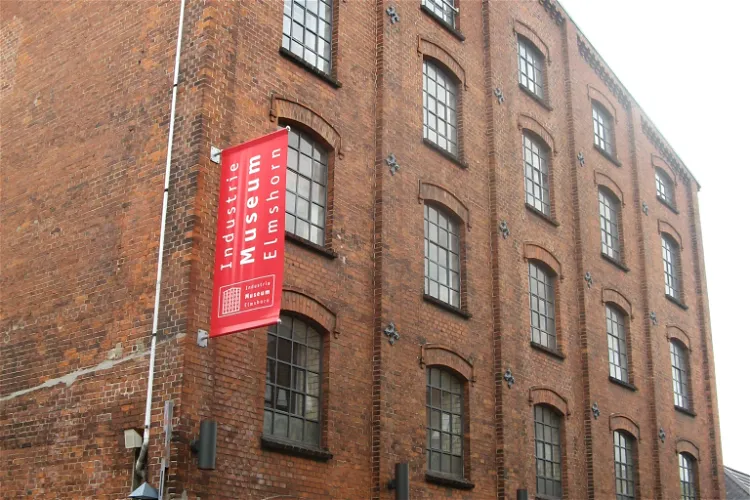
Industriemuseum Elmshorn
ElmshornThe museum uses the city of Elmshorn as a case study to explain the industrialization process that took place from 1890 to World War I. This approach provides visitors with a detailed understanding of the city's transformation during its heyday, making it a valuable learning experience.